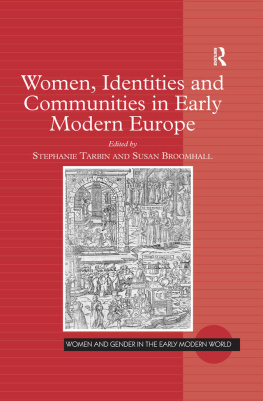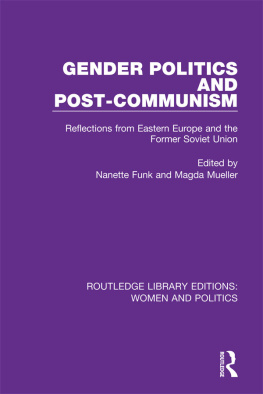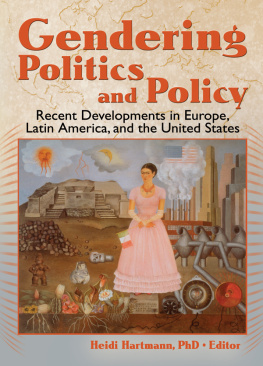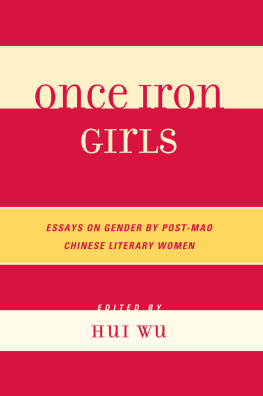This text offers a crucial contribution to international literature on the criminalization and imprisonment of women, by broadening the parameters of the feminist discussion of gender-responsive correctional policies. Well researched and theoretically sophisticated, the collection of chapters illustrate the patterns of individualization and social control that gender responsive prisons programmes carry with them across nations. This text will be of enormous benefit to scholars, activists and practitioners engaged in expanding current paradigms to include an analysis of the intersections of colonialism, gender, race and neoliberal correctional governance.
Dr. Shoshana Pollack, Professor, Faculty of Social Work, Wilfrid Laurier University, Canada
This excellent and overdue collection illuminates the much misunderstood and seldom examined issues impacting on women leaving prison. The book debunks the myth of rehabilitation and examines the realities of women facing the challenges of intersecting social and economic disadvantages alongside injustice and oppression. The collection, focusing on the struggles of women attempting to exit prison and survive outside, is essential reading for all those interested in women, prison and justice.
Jude McCulloch, Professor of Criminology and the Head of the School of Political and Social Inquiry, Monash Univeristy, Australia
Women Exiting Prison draws together cutting-edge research by internationally renowned authors. It calls for a new framework of understanding that entails a renewed commitment to decarceration and a reframing of the concept of responsibility when applied to women who are already marginalized, living in poverty and victims of abuse. It exhorts researchers not to continue to service the reintegration industries by colluding with the promotion of narrowly-focused programmes and instead to expose the unacceptable social and economic conditions that so predictably produce the women who constitute the majority of the female prison population in all countries. The editors are to be congratulated on producing a collection that really does say something new and stands out in a crowded market.
Anne Worrall, Professor of Criminology and Director of the Centre for Criminological Research, University of Keele, UK
This engaging collection of essays is a welcome contribution to feminist criminology and to our understanding of the impact of prison on women. Drawing together scholars from around the world, the editors have produced a high calibre publication that moves ahead many debates about punishment and prisoner re-entry. Evenly balanced between empirical and theoretical debate, the essays seek to ameliorate and challenge current practice. This link to activism and the evident commitment contributors have to the community of women affected by the criminal justice policies offers a renewed and compelling vision of radical criminology at a time when much of the field has seemingly drifted from political engagement.
Mary Bosworth, Reader in Criminology at the University of Oxford and Professor of Criminology at Monash University, Australia
Women Exiting Prison
Womens incarceration is on the rise globally and this has significant intergenerational, economic and humanitarian costs for communities across the world. While there have been efforts to implement reform, particularly in countries like Canada, the United Kingdom, the United States and Australia, the growing evidence suggests womens prisons and the support structures surrounding them are in crisis.
Women Exiting Prison is a collection of critical essays presenting groundbreaking research on womens post-imprisonment policy, practice and experiences. It is the first collection to offer international perspectives on gender, criminalization, the effects of imprisonment and women-centred approaches to the short- and long-term support of women exiting prison. It offers cutting-edge insights into contemporary policy developments and womens experiences across the United States, the United Kingdom, Australia, Canada and Northern Ireland.
The collection makes two important contributions. First, it marks a departure from an instrumental and individual focus on what works to reduce womens offending and re-offending behaviour a prevailing approach within competing collections focused on post-release issues. Second, it presents critical, original research with robust empirical foundations to revive feminist criminological engagement around gender, imprisonment, and most critically, post-release management, support and survival.
This collection will be of interest to higher-level undergraduate students studying criminological and social science courses including those related to gender and crime, imprisonment and correctional policy and qualitative research methods. In addition it will appeal to postgraduate researchers, policy makers and community-based advocates and service providers.
Bree Carlton is a Senior Lecturer in Criminology at Monash University, Australia. She has undertaken research and is published widely in the areas of history and prison studies. Her book, Imprisoning Resistance: Life and Death in an Australian Supermax, was published by the Sydney Institute of Criminology Series in 2007 and nominated in the True Crime category of the 8th Davitt Awards in 2008. Her collaborative research with Marie Segrave has focused on gender, imprisonment and post-release survival while her current research programme has extended to focus on penal reform and abolition.
Marie Segrave is a Senior Lecturer in Criminology in the School of Political and Social Inquiry at Monash University, Australia. Marie researches and publishes across a range of feminist and critical criminological concerns, including human trafficking, labour exploitation and migration, and post-imprisonment. She is co-author of Sex Trafficking: International Context and Response (Routledge 2009). Her collaborative research with Bree Carlton on womens survival post-imprisonment has been published widely, including journals such as Punishment and Society and the Australian and New Zealand Journal of Criminology.
Routledge studies in crime and society
| 1 | Sex Work
Labour, mobility and sexual services
Edited by JaneMaree Maher, Sharon Pickering and Alison Gerard
|
| 2 | State Crime and Resistance
Edited by Elizabeth Stanley and Jude McCulloch
|
| 3 | Collective Morality and Crime in the Americas
Christopher Birkbeck
|
| 4 | Talking Criminal Justice
Language and the just society
Michael J. Coyle
|
| 5 | Women Exiting Prison
Critical essays on gender, post-release support and survival
Edited by Bree Carlton and Marie Segrave
|
First published 2013
by Routledge
2 Park Square, Milton Park, Abingdon, Oxon OX14 4RN
Simultaneously published in the USA and Canada
by Routledge
711 Third Avenue, New York, NY 10017
Routledge is an imprint of the Taylor & Francis Group, an informa business
2013 Selection and editorial material, Bree Carlton and Marie Segrave; individual chapters, the contributors
The right of Bree Carlton and Marie Segrave to be identified as the authors of the editorial material, and of the authors for their individual chapters, has been asserted in accordance with sections 77 and 78 of the Copyright, Designs and Patents Act 1988.






